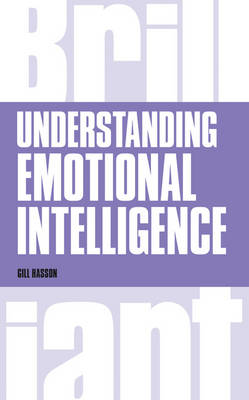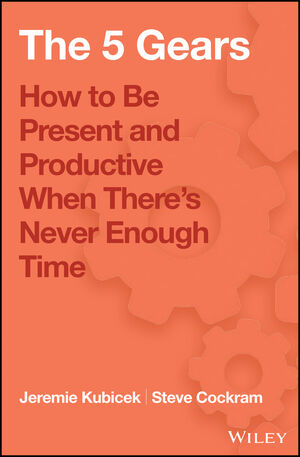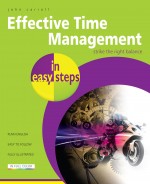
Books (Motivation)
Motivate yourself and others by
Call Number: BF503 B354ISBN: 9781444137354Publication Date: 2011Open this book and you will find purpose, raise morale, deliver results, and reach your goals. Motivate yourself and reach your goals by Call Number: BF503 C775ISBN: 9781444183894Publication Date: 2013This is a simple, straightforward and inspiring guide on how to motivate yourself to think more imaginatively in order to overcome the challenges of any situation.
Motivate yourself and reach your goals by Call Number: BF503 C775ISBN: 9781444183894Publication Date: 2013This is a simple, straightforward and inspiring guide on how to motivate yourself to think more imaginatively in order to overcome the challenges of any situation.
Articles (Motivation)
- How to motivate yourself and others? Intended and unintended consequencesSchroeder, J., & Fishbach, A. (2015). How to motivate yourself and others? Intended and unintended consequences. Research in Organizational Behavior, 35, 123–141. https://doi.org/10.1016/j.riob.2015.09.001
- How to Motivate Your StudentsGirmus, R. L. (2012). How to Motivate Your Students. Online Submission (p. 27).
- HOW TO MOTIVATE OTHERS AND MOTIVATE YOURSELF IN TIMES OF CRISISJosé Navarro, Lucía Ceja, Fernando Curioso, & Carlos Arrieta. (2014). How to Motivate Others and Motivate Yourself in Times of Crisis. Papeles Del Psicólogo, (1), 31.
- How to demotivate your top performers: Lessons from professional cricketEwing, T., Heilgenberg, K., & Pitt, L. (2019). How to demotivate your top performers: Lessons from professional cricket. Business Horizons, 62(2), 149–155. https://doi.org/10.1016/j.bushor.2018.09.003
- Nine Tips on How to Motivate Yourself at WorkNine Tips on How to Motivate Yourself at Work. (2016). Curriculum Review, 56(4), 10.
Books (EQ)
 Brilliant understanding emotional intelligence by Call Number: BF576 H355ISBN: 9781292083308Publication Date: 2015This book shows you how emotions work and how to use them effectively. It also helps you to build rapport and motivate others so as to leave a positive impression.
Brilliant understanding emotional intelligence by Call Number: BF576 H355ISBN: 9781292083308Publication Date: 2015This book shows you how emotions work and how to use them effectively. It also helps you to build rapport and motivate others so as to leave a positive impression.HBR's 10 must reads on emotional intelligence by
Call Number: BF576 H431ISBN: 9781633690196Publication Date: 2015Boston, Massachusetts: Harvard Business Review Press, [2015].
Covers articles to boost your emotional skills and professional success.We're All in This Together by
Call Number: HD66 R635ISBN: 9781401958138Publication Date: 2020-03-30The book's core principles include facilitating an environment of psychological safety, fostering inclusion and belonging, addressing and navigating conflict, and maintaining a healthy balance of high expectations and empathy.Working with millennials: using emotional intelligence and strategic compassion to motivate the next generation of leaders by
Call Number: HF5549.5.C75 R651ISBN: 9781440844126Publication Date: 2016It presents case studies that document specific management and leadership issues to resolve any situations.
Articles (EQ)
- Developing Meaningfulness at Work through Emotional Intelligence TrainingThory, K. (2016). Developing Meaningfulness at Work through Emotional Intelligence Training. International Journal of Training and Development, 20(1), 58–77.
- How Does Emotional Intelligence Make One Feel Better at Work? The Mediational Role of Work EngagementExtremera, N., Mérida-López, S., Sánchez-Álvarez, N., & Quintana-Orts, C. (2018). How Does Emotional Intelligence Make One Feel Better at Work? The Mediational Role of Work Engagement. International Journal Of Environmental Research And Public Health, 15(9). https://doi.org/10.3390/ijerph15091909
- Learning Emotional Intelligence: Training & AssessmentShults, A. (2015). Learning Emotional Intelligence: Training & Assessment. Online Submission.
- Emotional Intelligence and Creativity: The Mediating Role of Generosity and VigorCarmeli, A., McKay, A. S., & Kaufman, J. C. (2014). Emotional Intelligence and Creativity: The Mediating Role of Generosity and Vigor. Journal of Creative Behavior, 48(4), 290–309. https://doi.org/10.1002/jocb.53
Books (Productivity)
 5 gears: how to be present and productive when theres never enough time [E-book] by Call Number: HD57.7 K95ISBN: 9781119111153Publication Date: 2015Hoboken: Wiley, 2015.
5 gears: how to be present and productive when theres never enough time [E-book] by Call Number: HD57.7 K95ISBN: 9781119111153Publication Date: 2015Hoboken: Wiley, 2015.
This revolutionary text introduces you to the five different gears or mindsets, that carry you through various facets of your day. Get productive! Boosting your productivity and getting things done by Call Number: HD57 B166ISBN: 9780857083463Publication Date: 2012Using a method that is intuitive, easy to remember and simple to use, this book will help you transform how you think, what you focus on and what you do so that you can begin to create tangible results.
Get productive! Boosting your productivity and getting things done by Call Number: HD57 B166ISBN: 9780857083463Publication Date: 2012Using a method that is intuitive, easy to remember and simple to use, this book will help you transform how you think, what you focus on and what you do so that you can begin to create tangible results. How to be really productive: achieving clarity and getting results in a world where work never ends by Call Number: HD57 M368ISBN: 9781292083834Publication Date: 2015Edinburgh Gate, Harlow: Pearson, 2015.
How to be really productive: achieving clarity and getting results in a world where work never ends by Call Number: HD57 M368ISBN: 9781292083834Publication Date: 2015Edinburgh Gate, Harlow: Pearson, 2015.
This book provides you with practical guidance and key skills that will give you the freedom, space and mindset you need to get organised, focused and in control.Free to Focus by
Call Number: HD69.T54 H992ISBN: 9780801075261Publication Date: 2019-03-05This book helps readers redefine their goals, evaluate what's working, cut out the nonessentials, focus on the most important tasks, manage their time and energy, and build momentum for a lifetime of success."
Articles (Productivity)
- Education in Basic Skills and Training for Productive WorkGuillermo Labarca. (1998). Education in Basic Skills and Training for Productive Work. International Review of Education / Internationale Zeitschrift Für Erziehungswissenschaft / Revue Internationale de l’Education, 44(5/6), 413.
- Productive Work as Pedagogical Tool in School EducationYasin, A. M. (2013). Productive Work as Pedagogical Tool in School Education. Pertanika Journal of Social Sciences & Humanities, 21(4), 1447.
- Education in Basic Skills and Training for Productive WorkLabarca, G. (1998). Education in Basic Skills and Training for Productive Work. International Review of Education, 44(5/6), 413–439. https://doi.org/10.1023/A:1003428928788
- How To Run Productive MeetingsMamchur, C., & Association for Supervision and Curriculum Development, A. V. (1991). How To Run Productive Meetings.
- Productive and Re-productive Thinking in Solving Insight ProblemsCunningham, J. B., & MacGregor, J. N. (2014). Productive and Re-productive Thinking in Solving Insight Problems. Journal of Creative Behavior, 48(1), 44–63. https://doi.org/10.1002/jocb.40
- Hyperfocus: How to Be More Productive in a World of DistractionHyperfocus: How to Be More Productive in a World of Distraction. (2018). Publishers Weekly, 265(24), 58.
- PRODUCTIVITY HACKSP. M. (2018). Productivity Hacks. Fast Company, (229), 75.
- 5 WAYS TO BOOST YOUR PRODUCTIVITY TODAYDuffy, J. (2015). 5 Ways to Boost Your Productivity Today. PCWorld, 33(1), 101–109.
- Psychological characteristics of art specialists with a highly productive creative imaginationDikiy, I., Dikaya, L., Karpova, V., Lavreshina, A. & Kagramanyan, M. (2018). Psychological characteristics of art specialists with a highly productive creative imagination. Psychology in Russia: State of Art, (2), 134. https://doi.org/10.11621/pir.2018.02010
Videos (Productivity)
The happy secret to better work by Shawn Achor (May 2011)
Achor, Shawn (2011, May). The happy secret to better work [Video file].
Books (Time management)
 Effective time management in easy steps by Call Number: HD69.T54 C319ISBN: 9781840785593Publication Date: 2012This book will teach you how to manage your time effectively to achieve your long term goals.
Effective time management in easy steps by Call Number: HD69.T54 C319ISBN: 9781840785593Publication Date: 2012This book will teach you how to manage your time effectively to achieve your long term goals.How to be smart with your time by
Call Number: LB2395 P485ISBN: 9781838305284Publication Date: 2019This book focuses on improving your study skills and time management.Successful Time Management for Dummies by
Call Number: HD69.T54 Z51ISBN: 9781118982662Publication Date: 2015-03-23Zeller shows you how effective time management can help change your work day-- and your life. He gives you practical tips on managing distractions, fighting procrastination, and optimizing your workspace. Take back precious hours, and make the most of every minute of every day! Manage your time in 12 easy steps by Call Number: HD69.T54 T927ISBN: 9781865082950Publication Date: 2000St. Leonards, NSW: Allen & Unwin, 2000.
Manage your time in 12 easy steps by Call Number: HD69.T54 T927ISBN: 9781865082950Publication Date: 2000St. Leonards, NSW: Allen & Unwin, 2000.
This book tackles the time wasters in your day using the 12-step program to implement your ideas. The power of doing less [E-book] by Call Number: HD69.T54 O18ISBN: 9780857084194Publication Date: 2013Instead of trying to clear that endless to-do list, you will learn the tips to manage your time more effectively by reading this book.
The power of doing less [E-book] by Call Number: HD69.T54 O18ISBN: 9780857084194Publication Date: 2013Instead of trying to clear that endless to-do list, you will learn the tips to manage your time more effectively by reading this book.
Articles (Time management)
- Save Time. Work BetterBECK, R., & SPURLOCK, V. (2019). Save Time. Work Better. TD: Talent Development, 73(4), 50–54.
- Let’s Stop Meeting Like This: Tools To Save Time and Get More DoneJensen, C. (2016). Let’s Stop Meeting Like This: Tools To Save Time and Get More Done. Library Journal, 141(7), 53–54.
- How to Save Time if Time is Money?Baisi, A., Raveglia, F., De Simone, M., & Cioffi, U. (2017). How to Save Time if Time is Money? The Annals Of Thoracic Surgery, 103(6), 2021. https://doi.org/10.1016/j.athoracsur.2016.09.046
- Understanding procrastination: A motivational approachGrund, A., & Fries, S. (2018). Understanding procrastination: A motivational approach. Personality and Individual Differences, 121, 120–130. https://doi.org/10.1016/j.paid.2017.09.035
